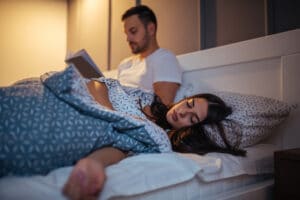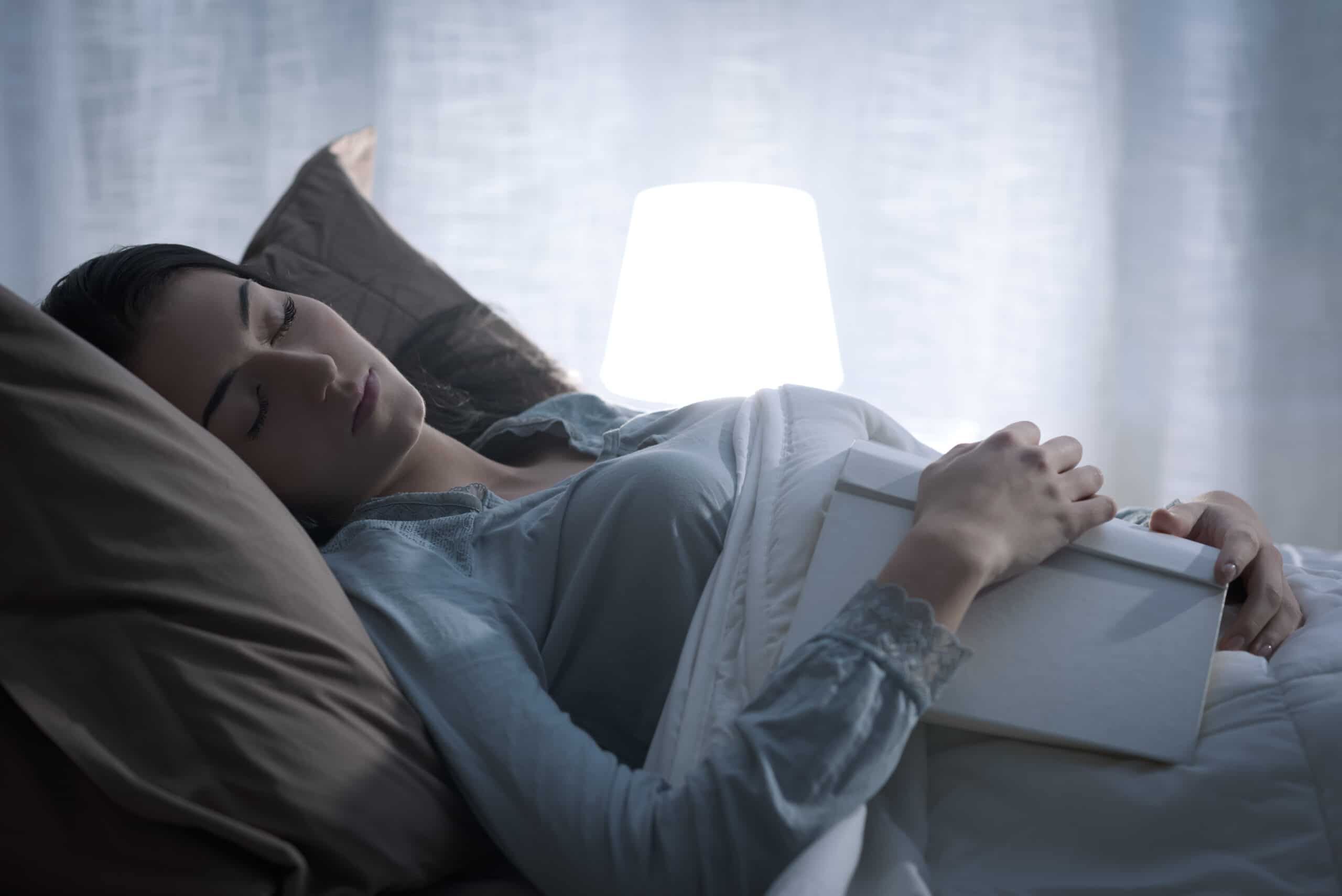Healthy sleep is falling asleep. Naturally.
While there are things beyond your control that affect your ability to fall asleep, there are probably more than you realize within your grasp. Begin by making sleep a priority. When you prioritize getting enough rest, you become the best version of yourself. This not only improves decision-making and stress management but also brings along numerous other health benefits.
It is estimated that 50 to 70 million Americans chronically suffer from a disorder of sleep and wakefulness, hindering daily functioning and adversely affecting health and longevity. [1]
When your body and mind are quieted and you fall asleep easily without pills or devices or an app, this is the naturally healthy way to fall asleep. Yet, it eludes so many of us. There are many factors that interfere with your ability to fall asleep easily including financial worries, your bedroom environment, family drama, work stress, your diet, and more. Explore further to discover useful tips for achieving a better night’s sleep.
How long should it take to fall asleep?
When you turn off the lights and go to bed, it should take about 15 minutes before you fall into a light slumber. This is the first stage of a four-stage sleep cycle. Each cycle lasts about 90 minutes. Taking much more or much less time to fall asleep may be cause for concern.
Falling asleep when you “hit the pillow” is often a sign of exhaustion or just not getting enough sleep regularly. Getting consistently sufficient sleep is a foundation for better living and even more reason to prioritize your sleep.
You should not take too much less than nor too much more than 15 minutes to begin falling asleep.
Ideally, you go through four or five sleep cycles every night for complete restoration so when you go to bed too late or wake up too early, you shortcut these cycles completely and set yourself up for a more challenging day. Consistently giving yourself enough time to fall asleep and to sleep between 7 to 9 hours each night is how you prioritize your sleep.
12 Hints to Help You Fall Asleep Easier.
Everyone is different, so you need to find what works for you. Then, avoid those activities that interfere with your ability to fall asleep and make a habit of those that help. Here are a few hints you can try today to fall asleep a little easier and get better sleep tonight:
- Don’t eat HUGE meals or a lot of spicy food too late in the evening otherwise you will still be digesting your meal and be prone to indigestion and heartburn.
- Don’t sit in bed with your laptop, tablet or phone preparing for the next day’s work.
- Avoid vigorous workouts at least one hour before going to bed. Recent studies have shown a moderate workout a few hours before bedtime is okay though.
- Enjoy one or two alcoholic beverages before bedtime but not more.
- Be sure to drink plenty of water during the day. Dehydration can make you need to pee at night—it seems counter-intuitive but it’s true!
- Stop drinking coffee or any other caffeinated beverages by 3pm. If you know you’re sensitive to caffeine, then stop right after lunch.
- Lower the temperature. Your body naturally cools down while you sleep. Take a hot shower or warm bath before bed and speed up that cooling affect to fall asleep faster.
- Memory foam and down/feather bedding are known to trap heat. Examine the materials in your bed and bedding; change them if heat hinders your sleep.
- Turn off your devices! Melatonin is the sleepy hormone essential to helping you fall asleep. Blue light radiating from your devices negatively affects melatonin production.
- Schedule bedtime. We had one as kids, we enforce it for our own children but when it comes to us as adults, we often ignore this. Prioritize your sleep with a fixed bedtime!
- Create evening rituals before going to bed. Suggested bedtime rituals may include: light reading, listening to calming music, stretching/yoga, sipping an herbal tea, taking a bath.
- Make it nighttime inside. Turn off overhead lights after sunset. Turn on lamps or light candles instead.
Hint #12 is a big one! If your home and activities are the same at night as they are during the day, it’s no wonder you can’t fall asleep easily. The extension of daytime into nighttime factors a lot into the epidemic of modern sleep deprivation. Artificial light confuses your brain and body into thinking it is still daytime prohibiting melatonin production.
To encourage natural sleepiness, flip the switch from daytime to nighttime in your physical home and your physical body will naturally respond.
– Denise Pummer | SAMINA Sleep
Prioritize your sleep by adjusting the atmosphere in your home a few hours before bedtime. Low and slow is the way to go—dim the lights, lower the temperature, stretch and unwind, play relaxing music, insist the family use their “inside voices,” and discover how you can fall asleep with ease.
[1] Extent and Health Consequences of Chronic Sleep Loss and Sleep Disorders, https://www.ncbi.nlm.nih.gov/books/NBK19961/

